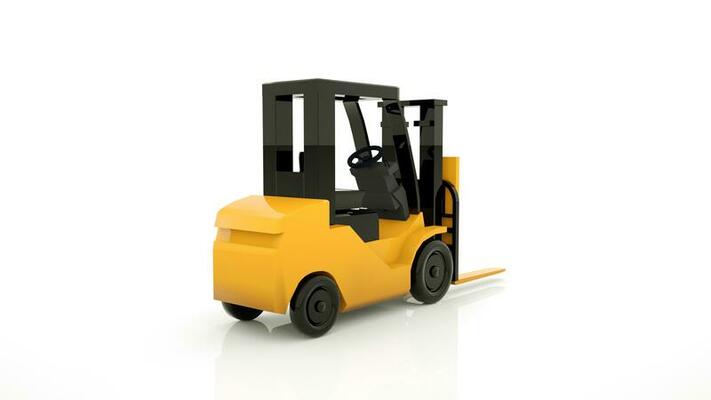Building Relationships: How Forklift Manufacturers Foster Partnerships
Building Relationships: How Forklift Manufacturers Foster Partnerships
Blog Article

In today's competitive industrial landscape, building strong relationships is essential for success. Forklift manufacturers play a pivotal role in this process by fostering partnerships with their clients and stakeholders. These relationships not only drive business growth but also enhance customer satisfaction and loyalty. By understanding the unique needs of different industries, forklift manufacturers can tailor their offerings to better serve their partners, creating a win-win scenario for everyone involved.
Collaboration is at the heart of effective partnership building. Forklift manufacturers engage with their clients to gain insights into their operational challenges and requirements. This two-way communication allows manufacturers to innovate and improve their products and services, ensuring they remain relevant and effective in an ever-evolving market. Through these efforts, forklift manufacturers establish themselves not just as suppliers, but as trusted partners committed to supporting their clients' success.
Understanding the Forklift Industry Landscape
Electric Diesel Forklift Manufacturing
The forklift industry plays a vital role in the global supply chain, providing essential equipment for material handling across various sectors. With the rapid growth of e-commerce and the increasing demand for efficient logistics solutions, manufacturers are challenged to innovate continuously. As companies seek to optimize their operations, the need for reliable, advanced forklifts is greater than ever. This environment has paved the way for collaboration and strategic partnerships, which enhances product offerings and service capabilities.
Forklift manufacturers are not only focused on creating durable and efficient machines but also on understanding the specific needs of their customers. This understanding often leads to the development of customized solutions that cater to unique operational challenges faced by different industries. By fostering strong relationships with clients, manufacturers can gain insights that drive innovation, ensuring that their products remain relevant in a dynamic marketplace.
To succeed in this competitive landscape, forklift manufacturers must also keep an eye on technological advancements. Innovations such as automation and electric forklifts are transforming the industry, leading to improved efficiency and sustainability. Manufacturers who actively participate in industry trends and collaborate with technology providers are better positioned to meet customer expectations, ultimately strengthening their partnerships and driving growth in the forklift sector.
Strategies for Building Strong Partnerships
One of the primary strategies for forklift manufacturers to build strong partnerships is through effective communication. Open and transparent dialogue ensures that both parties understand each other's needs and expectations. This involves regular check-ins, feedback sessions, and sharing important updates. By fostering an environment where both manufacturers and their partners feel heard and valued, relationships can flourish and lead to successful collaborations.
Another key strategy is to focus on mutual benefits. Forklift manufacturers should identify opportunities where they can provide added value to their partners, whether through customized solutions, training programs, or exceptional customer service. By understanding their partners' business models and challenges, manufacturers can tailor their offerings to create win-win scenarios. This not only strengthens alliances but also encourages long-term loyalty and cooperation.
Lastly, investing in technology and innovation plays a crucial role in enhancing partnerships. Forklift manufacturers that leverage advanced technologies to optimize operations and improve efficiency can better support their partners. This might include offering digital tools for fleet management or implementing predictive maintenance solutions. By staying ahead of industry trends and providing cutting-edge resources, manufacturers can position themselves as valued partners, further solidifying their partnerships in the competitive market.
The Importance of Collaboration in Innovation
Collaboration is essential for forklift manufacturers to keep up with the rapidly evolving demands of the industry. By partnering with other companies, research institutions, and technology providers, manufacturers can access new insights and technologies that enhance their product offerings. This collaborative spirit not only fosters innovation but also helps in developing solutions tailored to the specific needs of customers, ultimately leading to improved efficiency and productivity in material handling operations.
Moreover, assembling a diverse team of experts from various fields allows forklift manufacturers to explore unique ideas and approaches that might not be possible in isolation. Such partnerships can lead to breakthroughs in safety features, energy efficiency, and automation technologies. As industries increasingly push for sustainability, working closely with partners can accelerate the development of eco-friendly forklift models that balance performance with environmental responsibility.
Additionally, collaboration often leads to shared resources and knowledge, reducing time to market for new products. This synergy enables forklift manufacturers to respond more quickly to market changes and customer feedback, ensuring they remain competitive. By fostering strong partnerships, manufacturers not only enhance their innovation capabilities but also build a community that drives the entire industry forward.
Report this page